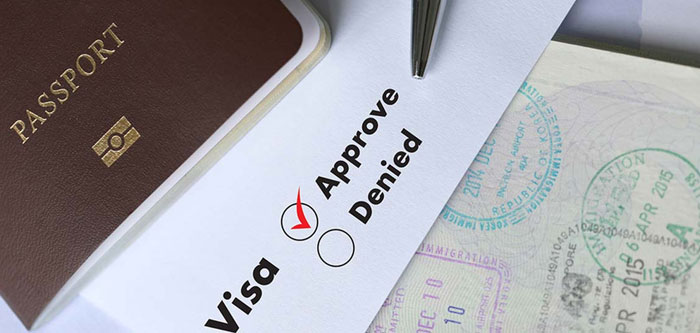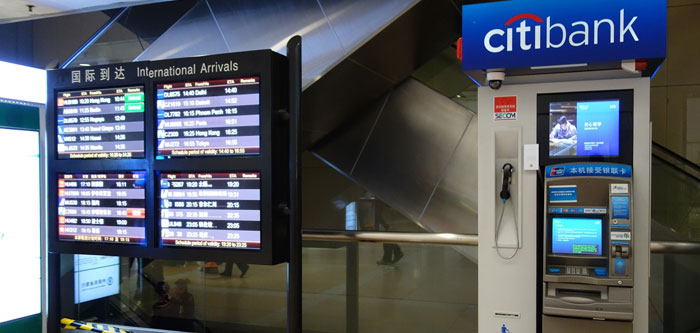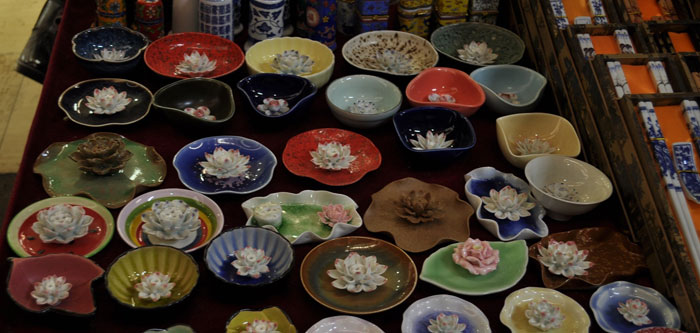For those looking to travel to China for business or pleasure, without a larger travel or tourist group, it is best to be thoroughly prepared for your trip in order to make it as smooth as possible. Below we highlight some common questions or concerns that travelers may have, and provide answers and helpful tips to travel in China without issue.
Do I Need a Visa to Travel in China?
The short answer is yes. There are some exceptions in certain regions and cities for very short duration stays, but in general, the majority of travelers will need a visa. For US residents, this must be obtained before departing to China, as visas are not issued at customs. You can find full guides online as to how to apply for a visa, and/or recruit a service company to help you (for a fee).
What Do I Do for Money in China?
China accepts only its own currency, RMB (Yuan Renminbi), known as the yuan or quai. Like US currency, it comes in mostly familiar denominations, 1, 10, 20, 50, and 100 RMB. Most businesses, vendor stalls, etc. use cash so that you will need some local money with you. Hotels and especially upscale places may offer credit card service, but it is better to be prepared for everyday expenses during your trip.
You can withdraw funds as local currency from international ATMs in many tourist destinations, as well as at some branches of international banks. It doesn’t hurt to have some on hand before traveling into the country, either. Just be sure to remember to inform your bank back home before your trip that you will be in China, or the withdrawals in local currency may get flagged and denied.
What Do I Need to Know About Local Payment Customs?
There are two important concepts to know regarding local payment customs if you don’t wish to insult (or be taken advantage of) in your purchase of goods and services in China. First, tipping is not part of the service culture in China like it is in the United States. It is considered offensive, in some cases, so do not tip.
Second, when it comes to pricing, outside of major chain stores, transportation, supermarkets, or similar upscale places, haggling and price negotiation are expected. Vendor/street stalls, markets, etc. are havens for haggling. In general, in these locations, don’t pay the list price, make a reasonable offer below it, or you are wasting money. Start low, and try not to do it with lots of other people around.
If in doubt if it’s OK to haggle in a particular place, simply ask if the vendor can offer a lower price. Obviously, there may be language issues if you do not have a translator or speak Mandarin or Cantonese, but in all cases, if you are haggling, you can always walk away – there are lots of places to shop, and it might force a cheaper deal.
How About Insurance?
When it comes to travel insurance, you should definitely purchase insurance for your more expensive items when you travel to China – camera, laptop, electronics, jewelry, etc. However, as in most cases, you should also limit what you bring to things you absolutely need and otherwise can afford to lose. Aside from wedding bands and similar, excessive jewelry or electronics are not necessary for most travelers, and consequently can help keep travel insurance costs low.
What About Food and Drink?
There are a large range of places to purchase food and beverages in China, from local street carts to upscale fine-dining restaurants. Many major cities also have popular western chains as well – though if you’re traveling, you should really try some local flavors.
One important note, though, is DO NOT drink the tap water, and generally don’t ask for ice (often made with the tap water). Chinese water in the majority of places is very polluted and may result in health problems. Bottled water is on offer in the majority of places.
What About Air Pollution?
In a few major cities and industrial areas, such as Beijing, there are days when the air pollution can be quite bad. Many locals wear masks, though in truth unless they are N95 or similar particulate-rated filter masks, they aren’t doing much. If the local air quality is particularly bad and alerts are issued, it is best to avoid too much outdoor activity and exertion. However, in a large portion of the country, the air pollution is not very bad – even just a little way outside of some major cities, clear blue skies can be seen.
How Do I Get Around in China?
There are many transportation options in China. In addition to planned flights or other major travels, locally there are usually buses, taxis, and subways. In addition, bicycle rental services have become all the rage in many cities. The only important thing to note here is that most taxi drivers do not necessarily know English, so it might be useful to have your smartphone or a piece of paper with your intended destination on it, in Chinese, before hailing a taxi. Usually, hotel staff can help with this.
How Do I Communicate?
In tourist areas, hotels, restaurants, and other places may have English-speakers present as a matter of course. In more remote areas, shops, etc., this is much less likely. Basic pronunciation guides to common phrases or questions are readily available online and in bookstores in the US, and there are plenty of smartphone apps and other resources that can help in this regard.
Any Other Tips or Things I Should Know?
While travel tips for China could fill several books, we offer a few additional quick pieces of advice:
- You should pack a roll of toilet paper, and a bottle of hand sanitizer, if at all possible. China is not big on toilet paper, and outside of hotels or high-end restaurants, or possibly tourist attractions, it is not likely you will find toilet paper in the bathroom. Hand soap is also not a typical amenity offered, so having a bottle of hand sanitizer will help.
- If you’re looking for a place to eat, follow the crowds – if a particular restaurant or vendor has a line of locals, it’s a good bet its quality.
- China is crowded, so don’t be offended if you get jostled or bumped into while walking around.


